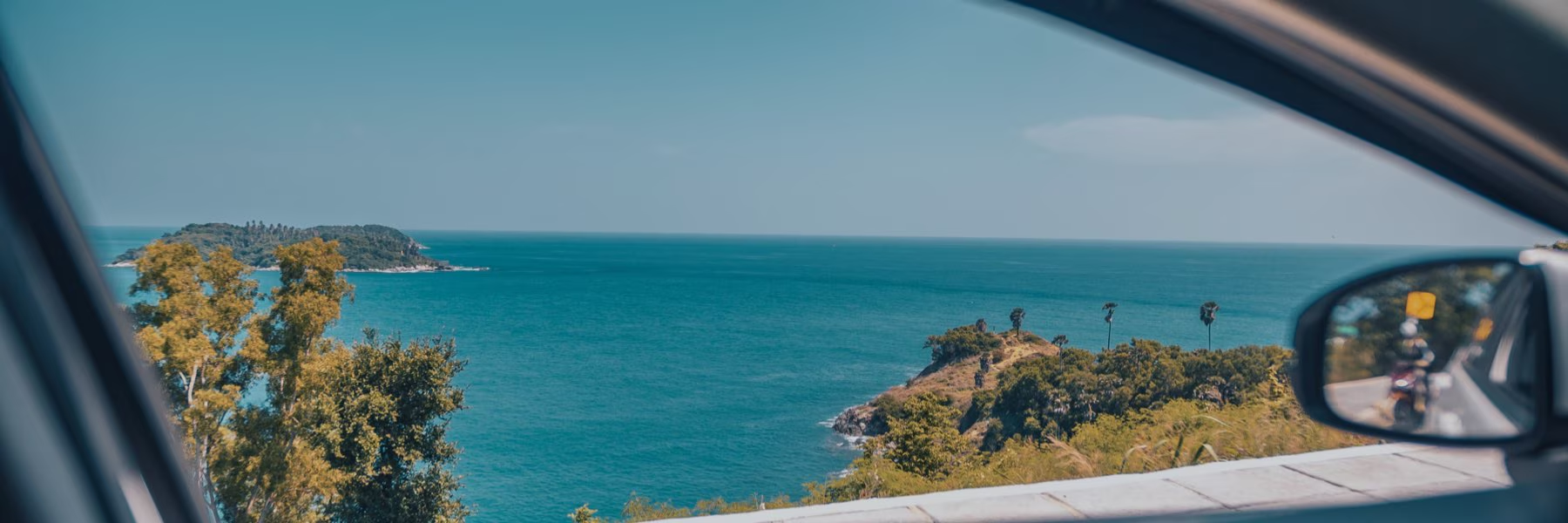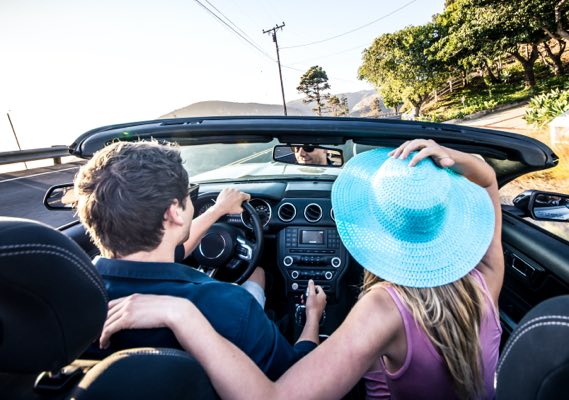- Over 1 million successful rentals

Car Hire Papua New Guinea
Save time and money. We compare the offers of car rental companies in Papua New Guinea on your behalf.
- Free cancellation Up to 48 hours prior to the scheduled pick-up time
- Best price guarantee Have you found a better price? Let us know and we will make you a better offer.
- 24000+ pick-up locations Locations around the world

Compare Car Hire
Carrentals.co.uk offers simple and straightforward car hire comparison services. We don't add a penny to your quotes!

Car rental locations in Papua New Guinea
Carrentals.co.uk compares rental car prices at the following destinations

Papua New Guinea Guide
Papua New Guinea is best explored by rental car. Carrentals.co.uk has over 8 pick-up locations in Papua New Guinea. This means there is always a pick-up location close to your destination.
Most popular car hire locations in Papua New Guinea
Driving
Papua New Guinea is located on the eastern side of the island of New Guinea, just south of the Equator and around 99 miles (160km) north of Australia. It's a fascinating country, known for its high levels of cultural and geographical diversity. There are 841 languages recorded in use, and almost as many distinct cultures. The island is thought to still have many undiscovered plants and animals among its mountains and tropical rainforests.
Driving Tips for Papua New Guinea
The main difference between Papua New Guinea and the UK in terms of driving is the lack of roads. It is difficult to lay roads in the mountainous terrain and the rain forests. The capital, Port Moresby, does not have connecting roads to any other towns in the area. Many of the villages and towns cannot be reached by road at all. Air travel is increasingly used in the region. Driving tends to be erratic and care should be taken. There is one motorway on the north coast. There may be unofficial tolls in place to pay for local repairs. Should there be an accident, don't stop at the scene and go straight to the nearest police station.
Driving licences: UK licenses are valid for one month. You must carry your licence at all times.
Which side does Papua New Guinea drive on: the left.
Speed limits:
- In towns: 60kmph (approx. 37mph)
- Outside of towns: 75kmph (approx. 50mph)
Alcohol limits: blood alcohol content 0.08 (80mg of alcohol per 100ml of blood). The number of units will depend on your weight and size. This is the same limit as the UK.
Driving age: 18 but you must be 25 or over to hire a car.
Seatbelts: drivers and passengers should wear seatbelts at all times. There are no separate child-restraint laws but given conditions it would be wise to ensure children are securely seated and restrained.
Mobile phones and GPS: there is no law against using either while driving.
Cost of fuel in Papua New Guinea: generally lower than the UK but it varies from place to place.
Car hire and fuel payment: in the capital and most towns most major credit cards can be used. It's wise to carry cash elsewhere.
Insurance: compulsory third-party insurance is required for all drivers. Off-road driving is not generally covered.
Traffic and parking: local custom has more sway than national law. Hotels often have secure parking.
Transport
Trains
There are no major railways.
Taxis
There are taxis available in Port Moresb, Alotau and Vanimo. You can hail one in the street sometimes but it's best to call one from a hotel. You'll need to negotiate fares before you get in, even if there is a meter and you won't get change.
Buses
There are bus services available in the towns and from the airport to the main resorts. Fares for a typical trip are around 20 kina (a little over five pounds).
Ferries
The main passenger boat provider is Lutheran Shipping. You can take passenger boats to Milne Island, Lae and Madang. It's sometimes possible to get space on a non-passenger boat, but you'll need to take your own food and water. Fares will need to be negotiated.
Airports
There is one international airport in Papua New Guinea, Jackson's International Airport, just outside Port Moresby. There are services from here to all over the island as well as international flights.
There are many small airports all over the island as it's the main method of transport. Fares will often depend on the weight of your luggage and sometimes your weight too.
Explore
Exploring Papua New Guinea
The biodiversity of the island and the welcoming cultures make it an unforgettable place to visit. If at all possible it's well worth taking several air tours, known as 'flight seeing'. Not only is it the best way to get around the island but the views are absolutely incredible.
The sing-sing performances at several of the festivals are unmissable, with their beautiful sounds and colourful costumes.
The island is renowned for its outdoor activities. Surfing, snorkelling and trekking are popular. Many visitors walk along the trails through the lowlands, mountain regions and rain forests.
Holidays and Festivals
There are numerous festivals and events, due to the diversity of culture.
- Enga Cultural Show (August), a demonstration of dances, arts and crafts.
- Mt Hagen Show (August), a celebration of tribal history and diversity. Many fascinating costumes and traditions.
- Tumbuan Mask Festival (July), showcases the fantastic culture of mask making on the island.
Weather
Much warmer than the UK, Papua New Guinea has a tropical equatorial climate, with high rainfall, warm, humid temperatures of around 30 degrees Celsius in lower regions. It's cooler in the mountains and the monsoon season is from December to March.
Practical Stuff
Papua New Guinea Travel Tips
Be vigilant while out and about and don't leave possessions unattended. It's considered impolite to take photos of people or cultural sites without permission. There is estimated to be around a thousand cultural groups in the country, each with distinctive practices, traditions and arts. There are over 800 languages in use but English is common.
Papua New Guinea Contact Numbers
International dialling/country code: +675
Emergency services: 111
British Embassy (Port Moresby): (+675) 325 1677
Money Matters
The currency is the kino, which is worth about 30p in sterling. There is usually a fee for using ATMs.
Health & Safety
You will need the usual vaccinations and it's recommended that you get boosters for diphtheria, tetanus, hepatitis A and typhoid. The NHS suggests considering vaccinating against hepatitis B, Japanese encephalitis and cholera. Malaria is common, so take precautions and speak to your GP about suitable anti-malaria tablets.
Papua New Guinea's healthcare system is still developing. It is common for hospitals to run out of supplies. Power shortages also affect facilities. In an emergency it is possible to be airlifted to nearby Australia. You will need to make sure you have good health insurance before leaving and also funds to cover immediate costs in case of emergency.
Be careful about food preparation. In some places the water isn't suitable for drinking, so take bottled water.
The villages are generally very safe and welcoming. Some towns have high crime rates, but with normal sensible precautions that should be followed anyway (don't flash your wallet, for instance and travel in groups in town) it's unlikely that you'll come across any problems. If you do then contact the police or British Consulate as appropriate.
Fitting In
It's a good idea to greet people with a warm handshake. One significant difference from the UK, however, is that direct eye contact is considered rude, so be prepared for warm greetings from people who will look at the floor instead of at you.
Visas for Papua New Guinea
Visas are required. These can be purchased on arrival in local currency for around 100 kina (approximately 26). Visitors must have a passport which is valid for at least six months after arrival.
Electricity
It is 240 volts (the UK uses 230 volts). You won't need any electricity adapter but you will need plug adapters. Papua New Guinea uses the same system as Australia so it's quite easy to get adapters.
Business Hours
Shops: open 8.30am-4pm or 5pm. Most business is conducted in small markets which have varying business hours so it's best to ask locally.
Banks: open 8.45am-3pm.
Post office: open 8am to 3pm (postpng.com.pg).
Helpful Phrases
(in Tok Pisin, a commonly used creole language)
Apinun- Good afternoon
Monin - Good morning
Em hamas?- How much is that?
Tenk yu- Thank you
Mi laik baim- I would like to buy
Halpim mi plis- Help me please
Nogat- No
Practical information
-
CurrencyPapua New Guinean kina
-
Driving directionLeft
-
City speed limit60 km/h
-
Freeway speed limit75 km/h
-
LanguageEnglish
What most people want to know
The following questions and answers are a selection of the most popular questions. If you do not find the answer to your question, have a look at the Frequently Asked Questions page or contact us.
- Avis
- Hertz